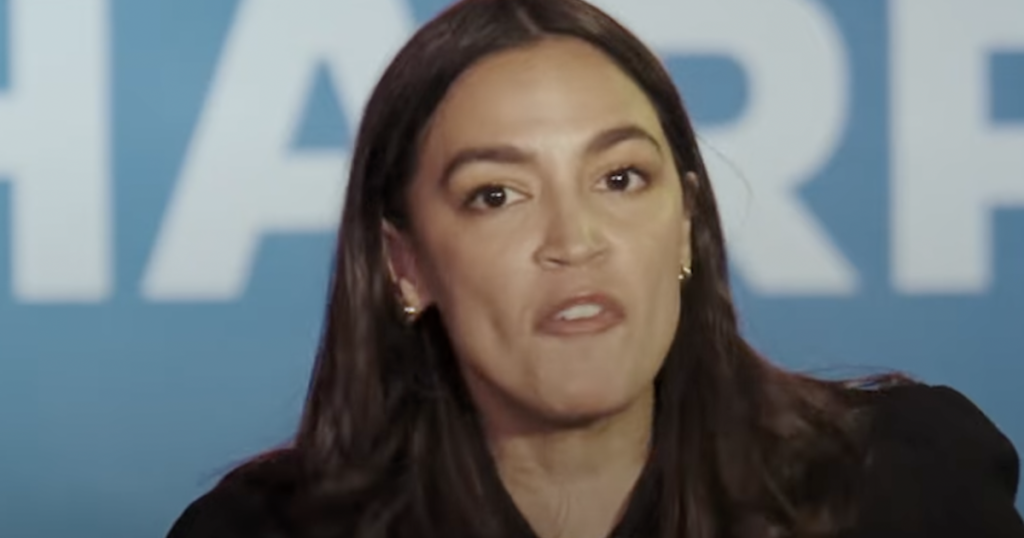Donald Trump’s recent appearance at a Pennsylvania McDonald’s, where he donned a uniform and worked the drive-through, has triggered a wave of anxiety among Democrats, particularly from the far-left contingent. This tactical move by Trump, designed to connect with everyday Americans, has sparked outrage from figures like Representative Alexandria Ocasio-Cortez (AOC), who criticized not only Trump’s actions but also Elon Musk’s financial giveaways to average citizens. AOC expressed her indignation, suggesting that Trump’s antics were nothing more than mockery towards the working class, and she pointed to Musk’s wealth as a troubling factor in political influence. The intensity of these reactions underscores the effectiveness of Trump’s strategy, which has clearly rattled the opposition.
Ocasio-Cortez publicly articulated her frustration, asserting that Trump’s costume and efforts to engage with the fast-food environment were disingenuous. She framed it as an attempt to belittle the struggles of working individuals rather than a genuine outreach effort. Her comments reflect a broader concern among Democrats, indicating that they perceive Trump’s antics as an attempt to weaponize populist sentiments. This narrative is reinforced by her criticisms of Musk, suggesting that financial interventions by billionaires are particularly troubling in the context of political elections when those billionaires support Republican candidates.
The situation has opened a window for discussion around the relationship between populism and celebrity in politics. AOC’s criticism highlights a fear that effective, relatable gestures by Trump could resonate with voters disenchanted by political elites. Ironically, the very nature of her outrage could serve to amplify Trump’s message, reinforcing the narrative of establishment vs. ordinary citizen. Her remarks not only underscore her own frustrations but also highlight a fundamental disconnect that some progressives believe exists between their messaging and working-class voters.
Critics have pointed out a certain level of hypocrisy in AOC’s response, recalling her own history of photo ops, particularly one at the southern border that she generated significant media attention. The contrast between her past actions and current complaints about Trump’s film-worthy appearance raises questions about the authenticity of political posturing on both sides. It underlines the reality that politicians, regardless of their party affiliation, frequently utilize strategies to create connections with constituents, even if those strategies are sometimes perceived as inauthentic or stage-managed.
The backlash within the Democratic party reveals a deeper panic about Trump’s resurgence as a political figure capable of galvanizing support among the electorate. Democrats are acutely aware that Trump’s visit to the McDonald’s serves as more than a mere publicity stunt; it is a calculated move aimed at winning over undecided voters. This level of panic can often lead to overreactions, which further distract from more significant policy discussions that these figures might prefer to be having in the run-up to elections.
In conclusion, Trump’s McDonald’s appearance and AOC’s response encapsulate the current political climate, where symbolic gestures and populist imagery play critical roles in shaping public perception. As Democrats grapple with Trump’s popularity and unconventional approaches, reactions like AOC’s reveal the underlying fear surrounding his potential influence over voters disenchanted with mainstream politics. The effectiveness of Trump’s latest strategy not only rattled the left but may also reshape the way political outreach is conducted in the coming election cycle, as both sides seek to engage a divided electorate.

